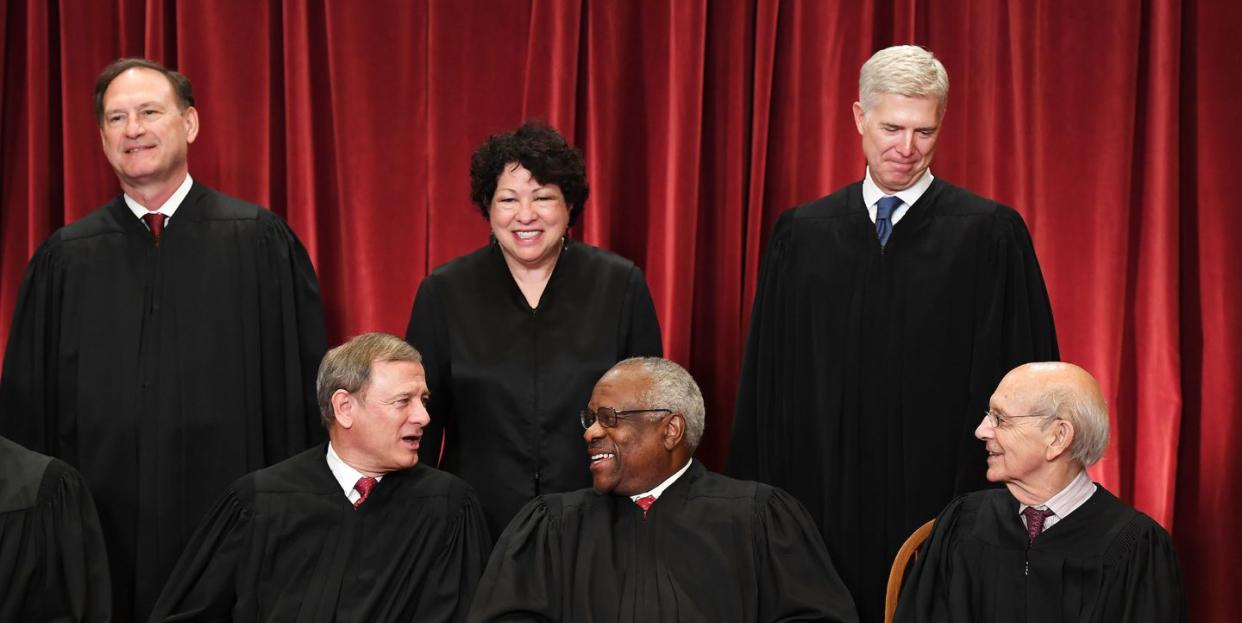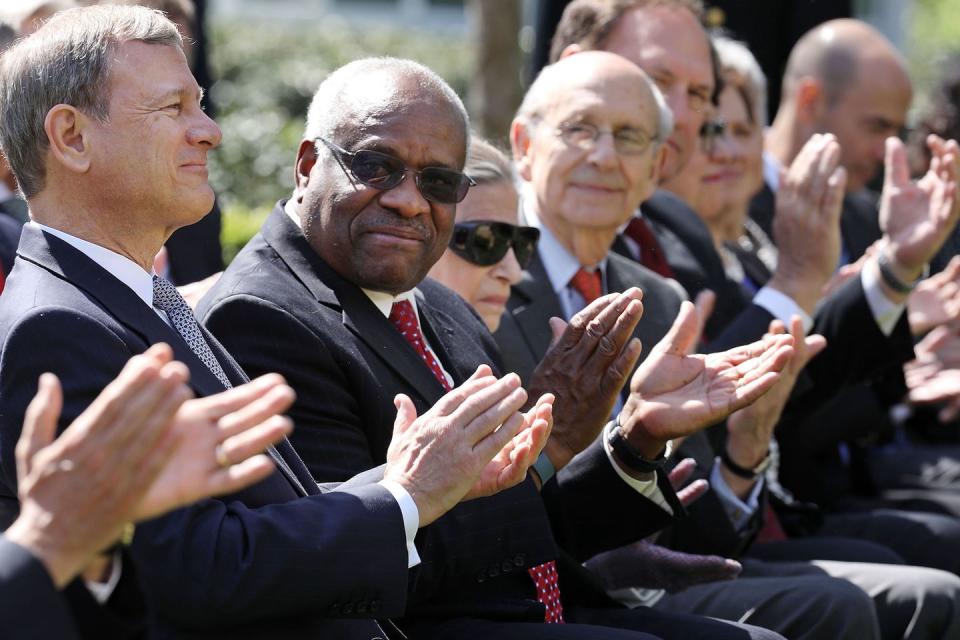The Supreme Court's Conservatives Are Laying Landmines in the Law

The end of this term at the Supreme Court is coming fast, and the Nine Wise Souls are trying to clear the decks so they can all go off to the Outer Banks and fire down margaritas and play beach volleyball. (They don't really do this.) Often, this entails a flood of opinions so overwhelming that the really interesting parts of them get lost in the cascading verbiage. On Monday, though, in the case of Gamble v. U.S., there was stuff going on between the lines that indicates that the ancient principle of stare decisis might be on the kill list for the court's conservative majority.
The basic principle upheld in the 7-2 decision was that, yes, you can be tried in both the state and federal systems for the same offense, a gaping hole in the Fifth Amendment's prohibition of double jeopardy. Justice Samuel Alito delivered the majority opinion. The two dissenters were Justice Ruth Bader Ginsburg and Justice Neil Gorsuch. Yeah, I needed to take a minute, too.
As Mark Joseph Stern writes in Slate, Ginsburg and Gorsuch each wrote separate opinions.
I suspect it has to do with their disparate treatment of stare decisis, or respect for precedent. Ginsburg framed Gamble as the rare case that could overturn more than a century of precedent without profoundly disrupting the law, since “overruling the separate-sovereigns doctrine would not affect large numbers of cases.” Gorsuch, by contrast, launched an attack on “blind obedience to stare decisis,” favorably citing two recent controversial 5–4 decisions that overturned precedent: Janus v. AFSCME and Franchise Tax Board v. Hyatt. Presumably, Ginsburg could not endorse Gorsuch’s zeal to overturn precedents simply because a majority of the court dislikes them.
I agree. But the real meat of the controversy came from Justice Clarence Thomas, who never met a precedent he didn't like that he couldn't find a reason to overturn: Roe, Miranda, maybe Brown. Why not? Thomas has been hungering for a return to Gilded Age, States Rights jurisprudence ever since he got on the bench, perhaps because he got so dinged up getting there and is fired by an endless desire to avenge himself.

All the way back in 1995, in US Term Limits v. Thornton, Thomas went full Tenther.
These basic principles are enshrined in the Tenth Amendment, which declares that all powers neither delegated to the Federal Government nor prohibited to the States "are reserved to the States respectively, or to the people." With this careful last phrase, the Amendment avoids taking any position on the division of power between the state governments and the people of the States: It is up to the people of each State to determine which "reserved" powers their state government may exercise. But the Amendment does make clear that powers reside at the state level except where the Constitution removes them from that level. All powers that the Constitution neither delegates to the Federal Government nor prohibits to the States are controlled by the people of each State.
And Pickett's division made it all the way over the stone wall, and now we all need passports to go to the Orange Bowl. And this was in an opinion in which Thomas was concurring.
With that opinion in mind, Thomas's thwacking attack on stare decisis in Monday's opinion gives us little doubt what his long-term purpose is.
"The Court’s multifactor approach to stare decisis invites conflict with its constitutional duty. Whatever benefits may be seen to inhere in that approach-e.g., “stability” in the law, preservation of reliance interests, or judicial “humility,”-they cannot overcome that fundamental flaw. In any event, these oft-cited benefits are frequently illusory. The Court’s multifactor balancing test for invoking stare decisis has resulted in policy-driven, “arbitrary discretion.” ...
The inquiry attempts to quantify the unquantifiable and, by frequently sweeping in subjective factors, provides a ready means of justifying whatever result five Members of the Court seek to achieve...When faced with a demonstrably erroneous precedent, my rule is simple: We should not follow it. This view of stare decisis follows directly from the Constitution’s supremacy over other sources of law-including our own precedents...That the Constitution outranks other sources of law is inherent in its nature. For that reason, we should not invoke stare decisis to uphold precedents that are demonstrably erroneous."
There are land mines being laid, one after another.
Respond to this post on the Esquire Politics Facebook page here.
('You Might Also Like',)

